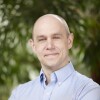Supporting Travel, Supporting Students in 2022
A hundred years ago, Sigma Pi Sigma was created at Davidson College, North Carolina, by students and faculty who donated their time and resources to help strengthen the undergraduate community of physics and astronomy students. Two of the founding pillars of the society are to support excellence in physics and astronomy and to encourage fellowship. These ideals are part of the charge that each Sigma Pi Sigma member agrees to upon joining, and they live on today through our support of the 2022 Physics Congress.
While travel remains something most students were not able to do much of recently, in-person conferences have begun again around the globe. Undergraduate research presentations remain one of the most important professional development activities we can support. The practice of effectively and succinctly communicating with peers and leaders in the field is excellent preparation for today’s workforce. Engaging in conferences provides students with a wealth of skills and experiences that will serve them throughout their careers and that go beyond what can be taught in the classroom.
By presenting on their physics and astronomy research or outreach, students not only participate in the scientific process but also hone their communication skills as they learn to share findings and interests with a wide audience. They practice their elevator speeches and make connections that can open up future career paths. They develop an awareness of what it means to be part of the scientific community beyond their immediate research groups and academic departments.
Often, students gain insights into how their research connects to other research groups—or entire fields of study of which they were not aware. Science that occurs in a vacuum runs the risk of failing to advance the field and our shared understanding of the universe. With your help, we can provide student leaders with opportunities to grow both professionally and socially. SPS and Sigma Pi Sigma are inviting students from all around the United States and beyond to join us October 6–8 in Washington, DC, for the 2022 Physics Congress. This event will bring together over 1,000 students for three days of professional development and networking.
Plenary speakers include
- Julianne Pollard-Larkin, Section Chief for Thoracic Radiation Physics at MD Anderson Cancer Center
- K. Renee Horton, Space Launch System (SLS) Quality Engineer at NASA
- Rush Holt Jr., Scientist, Politician, and former CEO of American Association for the Advancement of Science (AAAS)
- Sarah Hörst, Associate Professor of Planetary Sciences at Johns Hopkins University
This once-in-an-undergraduate-career opportunity only happens every few years, and we want as many students as possible to be part of the action.
With the direct support of donors such as yourself, SPS can offer students grants to help offset travel and registration costs for the 2022 Physics Congress. You can help students make connections that will last a lifetime by contributing to the Congress Centennial Endowment Fund at

Students supported by Sigma Pi Sigma member donations at the 2019 Physics Congress.

Luminary and longtime friend of SPS, Jim Gates, addresses the 2019 Physics Congress.

Students attend a workshop at the 2019 Physics Congress.

Students present their research. All photos courtesy of Ashauni Lennox, AAPT.
“I conduct research on the physics of smell. I presented this research at the PhysCon meeting last November and several other national meetings. I am excited to have been accepted to an REU in biophysics . . . Once again, thank you for your support. I know that many of the SPS programs, such as the scholarship program, would not be possible without the generosity and dedication of donors like you. I am especially grateful for the opportunities that your donation will provide me through this scholarship as I continue my education. Your generosity has truly made a difference in my life.”
- Carissa, an SPS member who received a donor-supported SPS travel award
“The community of SPS, whether at my school or at PhysCon 2019, has blown me away, [especially] the number of people who are curious about the physical world. SPS has given me a platform to spread the passion for physics through our community outreach and campus ice cream socials. It’s given me more information on what a life after my physics degree could look like. I am so grateful for what I have learned through this society, and the people I have met through this organization. For a long time, I was studying physics out of pure enjoyment, but this past year, being involved with SPS has opened the door for me to really think about what I am able to do after I graduate. Or after I graduate with a PhD, which is what I want to do after my bachelor’s.”
- Sophie, an SPS member who received a donor-supported SPS travel award




